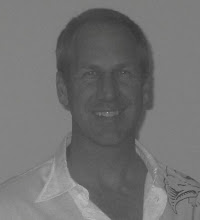Greed didn't cause the financial crisis. Then what did? Simple human error -- bad risk assessment. We all thought we knew all the risks and it turns out we didn't. Risks are ok, if you know them. Vegas casinos prove the point. Many of their table games give the player almost a 50% chance of winning, meaning the house loses 49.5 percent of the time. Yet the casinos continue to rake in money, year after year. Why? Because in a card game, they know the entire universe of risk and they account for it. A .5% win is still a win and it now becomes an exercise in simply ramping up the total number of dollars played to make sure they get .5% of billions of dollars instead of .5% of millions.
Insurance companies work the same way. They buy and sell risk. An insurance company promises to pay for anyone who crashes their car or gets bronchitis. They make money because they know not everyone will make a claim. They look at the population, the percentage of car crashers and coughers, and they price in the risk. But what if suddenly the bird flu makes the dreaded transition and causes a pandemic outbreak that spreads throughout the insured population? Did they price in that risk? If they did not see it coming, the consequences would be financial collapse for that company.
The idea that BOTH towers in the World Trade Center could collapse at the same time was a risk not considered. Although both towers were covered, pricing was based on the risk of only one collapsing, leaving the other uninsured on 9-11. CNN reported "The possibility of the loss of both structures was seen as so remote that cover was not taken out on those lines."
So you can see that smart people, even the smartest people in the world for calculating risk, still get it wrong, and some times, monumentally so.
The truth is that we are more comfortable believing that the rich are morally bankrupt than believing that they aren't as smart. That belief serves a two fold purpose. By exhalting the "best and the brightest", we give a natural excuse for our own failure to reach such heights. And by denigrating their conscience, we make them evil players in our ongoing Odyssee adventure.
Nothing is more destructive than thinking you know all of the risks when you don't. If you don't know how deep the lake is and you KNOW you don't know, you'll probably toe your way in. But if you don't know how deep the water is but THINK you know its deep enough, a headfirst dive can be catastrophic. That's what happened to us. Guys thought they knew the risks and they priced them in accordingly. Only so many houses go into foreclosure. Price adjusted. Risk accounted for.
We all believed in the guys who believed they knew all of the risks. Come on. These are Wall Street guys. They came from Harvard and Yale. They were the top of their class. They had pedigrees. They came from families who knew nothing but money. While the rest of us played in cardboard club houses, they played in real ones.
They didn't. Their beliefs were all reinforced by the smart guys around them who also held the same wrong beliefs.
Insurance companies work the same way. They buy and sell risk. An insurance company promises to pay for anyone who crashes their car or gets bronchitis. They make money because they know not everyone will make a claim. They look at the population, the percentage of car crashers and coughers, and they price in the risk. But what if suddenly the bird flu makes the dreaded transition and causes a pandemic outbreak that spreads throughout the insured population? Did they price in that risk? If they did not see it coming, the consequences would be financial collapse for that company.
The idea that BOTH towers in the World Trade Center could collapse at the same time was a risk not considered. Although both towers were covered, pricing was based on the risk of only one collapsing, leaving the other uninsured on 9-11. CNN reported "The possibility of the loss of both structures was seen as so remote that cover was not taken out on those lines."
So you can see that smart people, even the smartest people in the world for calculating risk, still get it wrong, and some times, monumentally so.
The truth is that we are more comfortable believing that the rich are morally bankrupt than believing that they aren't as smart. That belief serves a two fold purpose. By exhalting the "best and the brightest", we give a natural excuse for our own failure to reach such heights. And by denigrating their conscience, we make them evil players in our ongoing Odyssee adventure.
Nothing is more destructive than thinking you know all of the risks when you don't. If you don't know how deep the lake is and you KNOW you don't know, you'll probably toe your way in. But if you don't know how deep the water is but THINK you know its deep enough, a headfirst dive can be catastrophic. That's what happened to us. Guys thought they knew the risks and they priced them in accordingly. Only so many houses go into foreclosure. Price adjusted. Risk accounted for.
We all believed in the guys who believed they knew all of the risks. Come on. These are Wall Street guys. They came from Harvard and Yale. They were the top of their class. They had pedigrees. They came from families who knew nothing but money. While the rest of us played in cardboard club houses, they played in real ones.
They didn't. Their beliefs were all reinforced by the smart guys around them who also held the same wrong beliefs.
